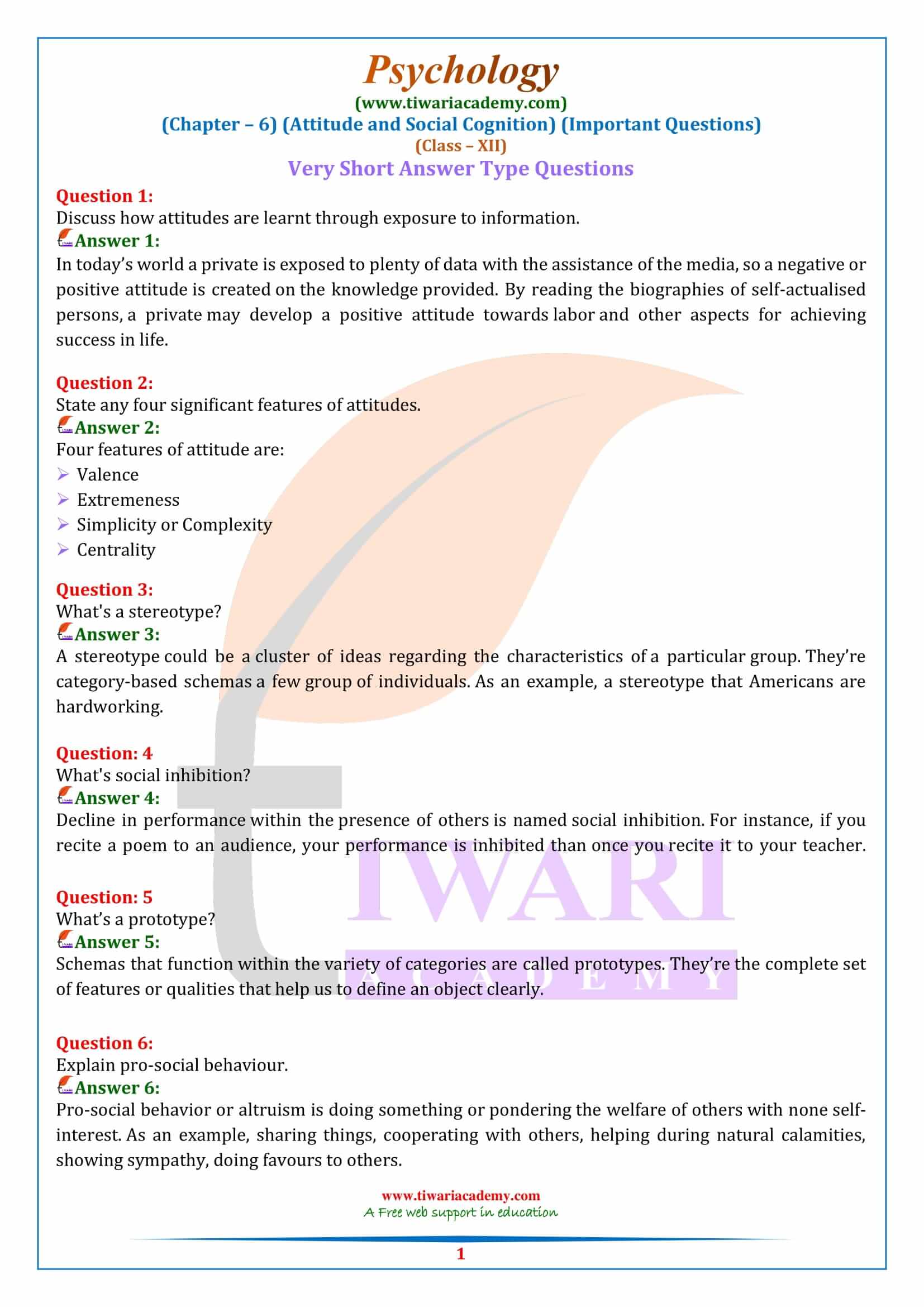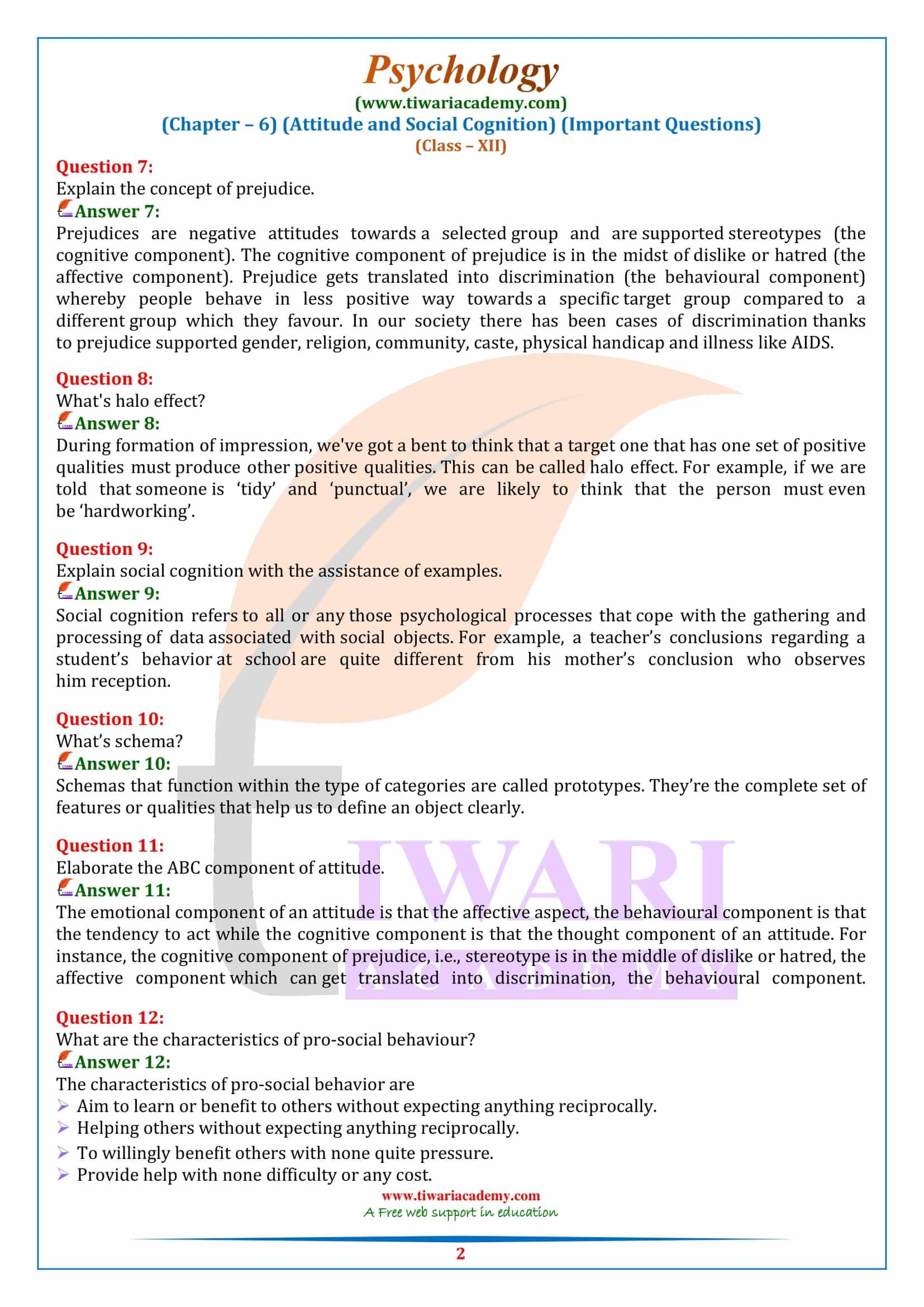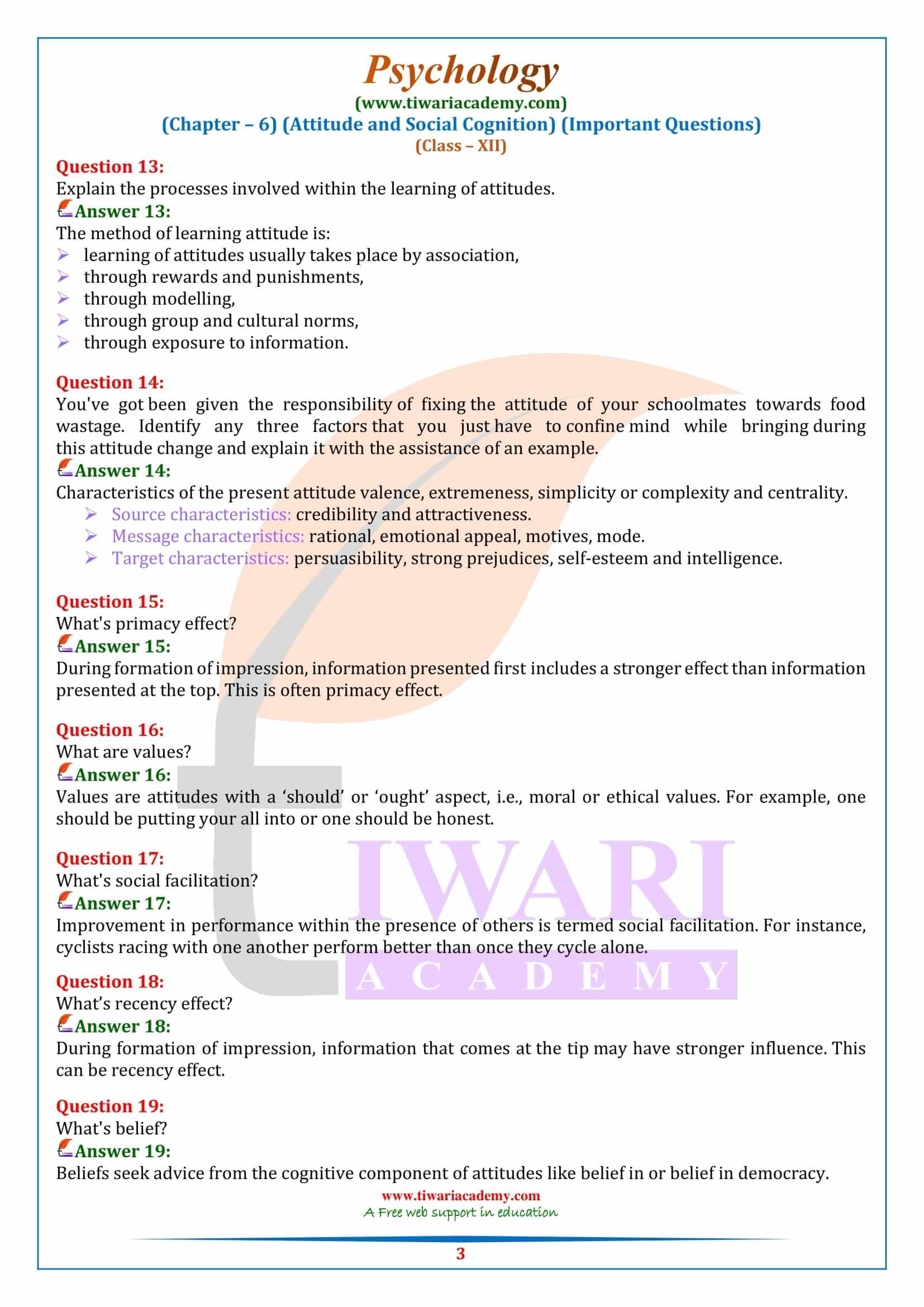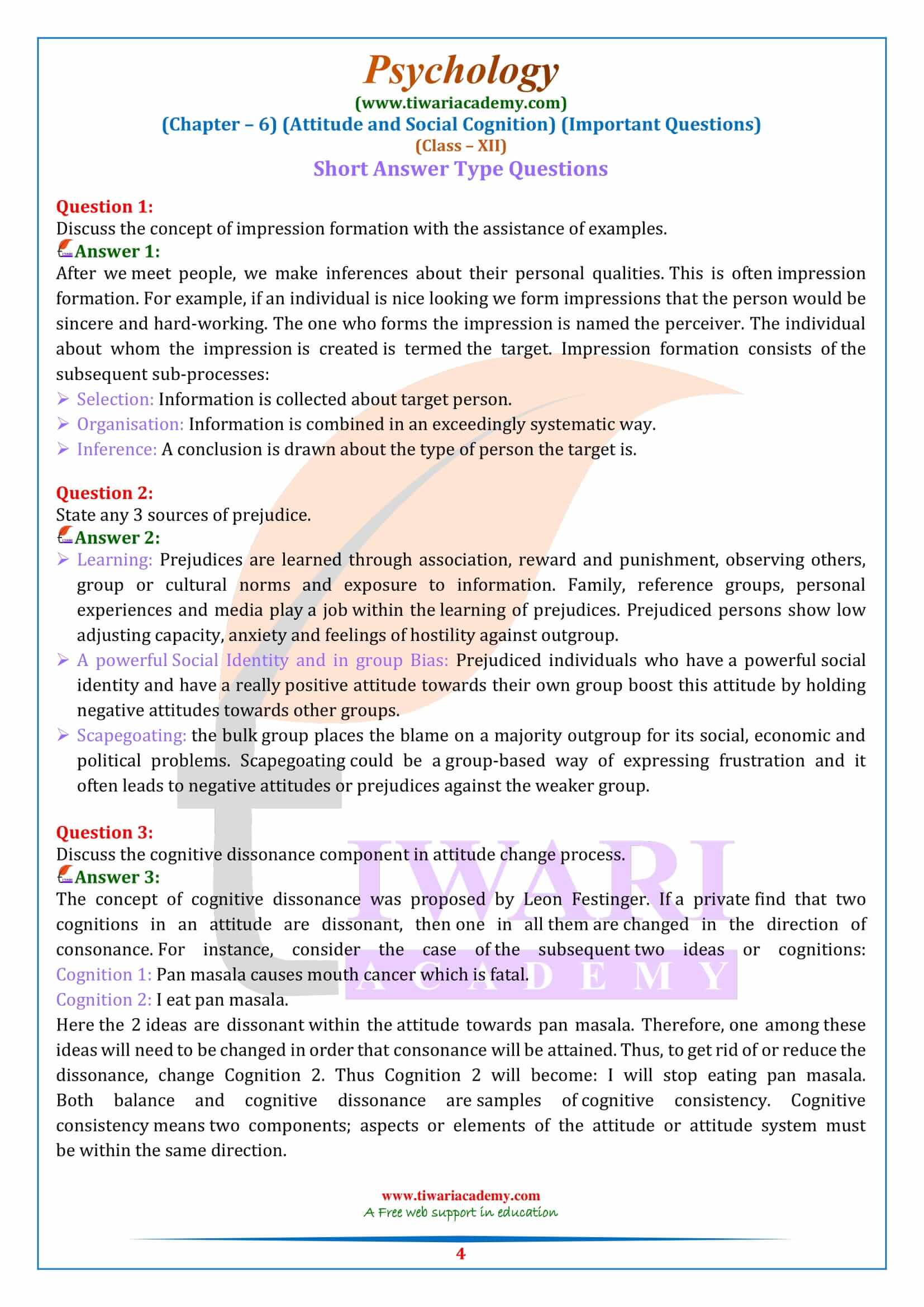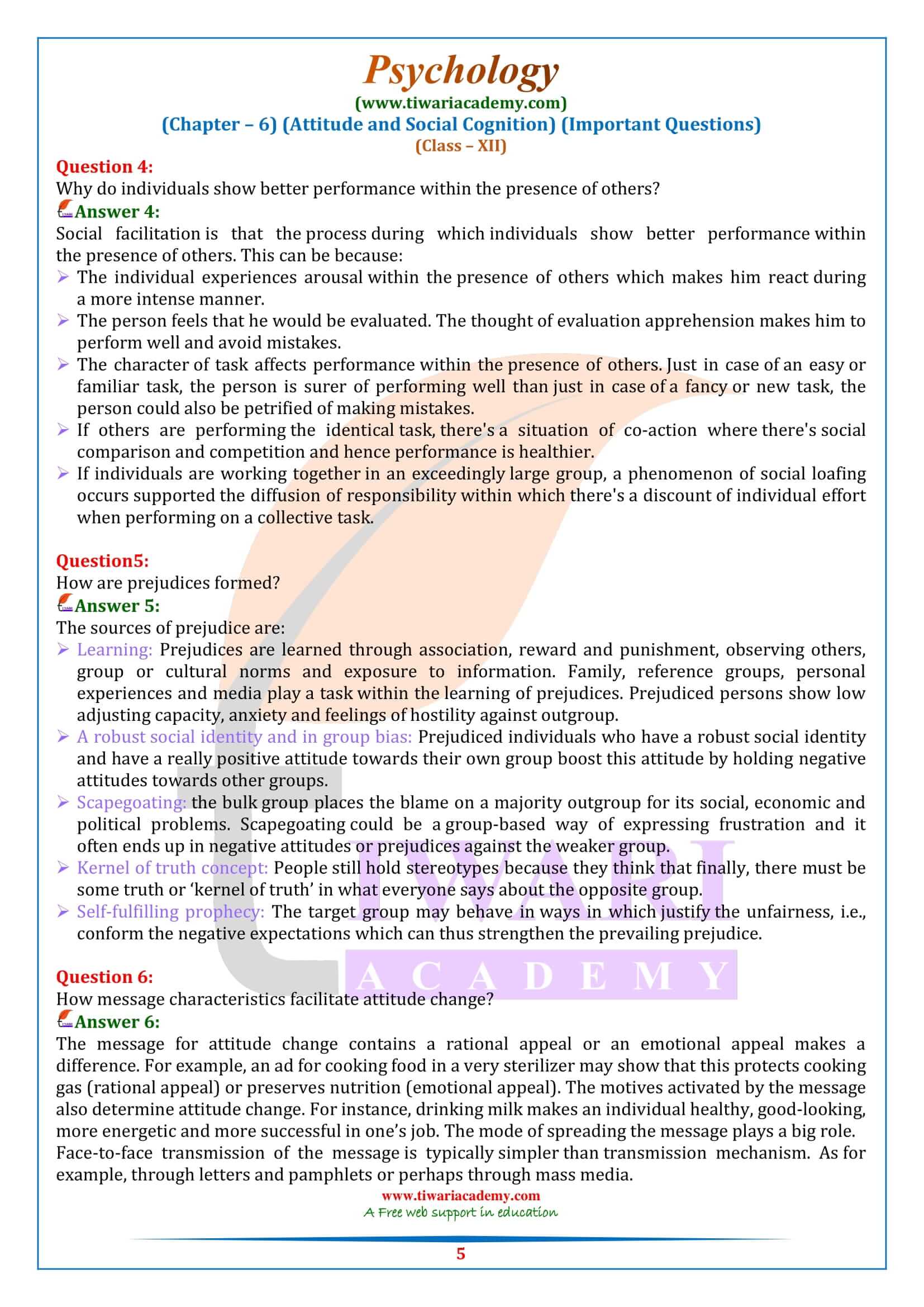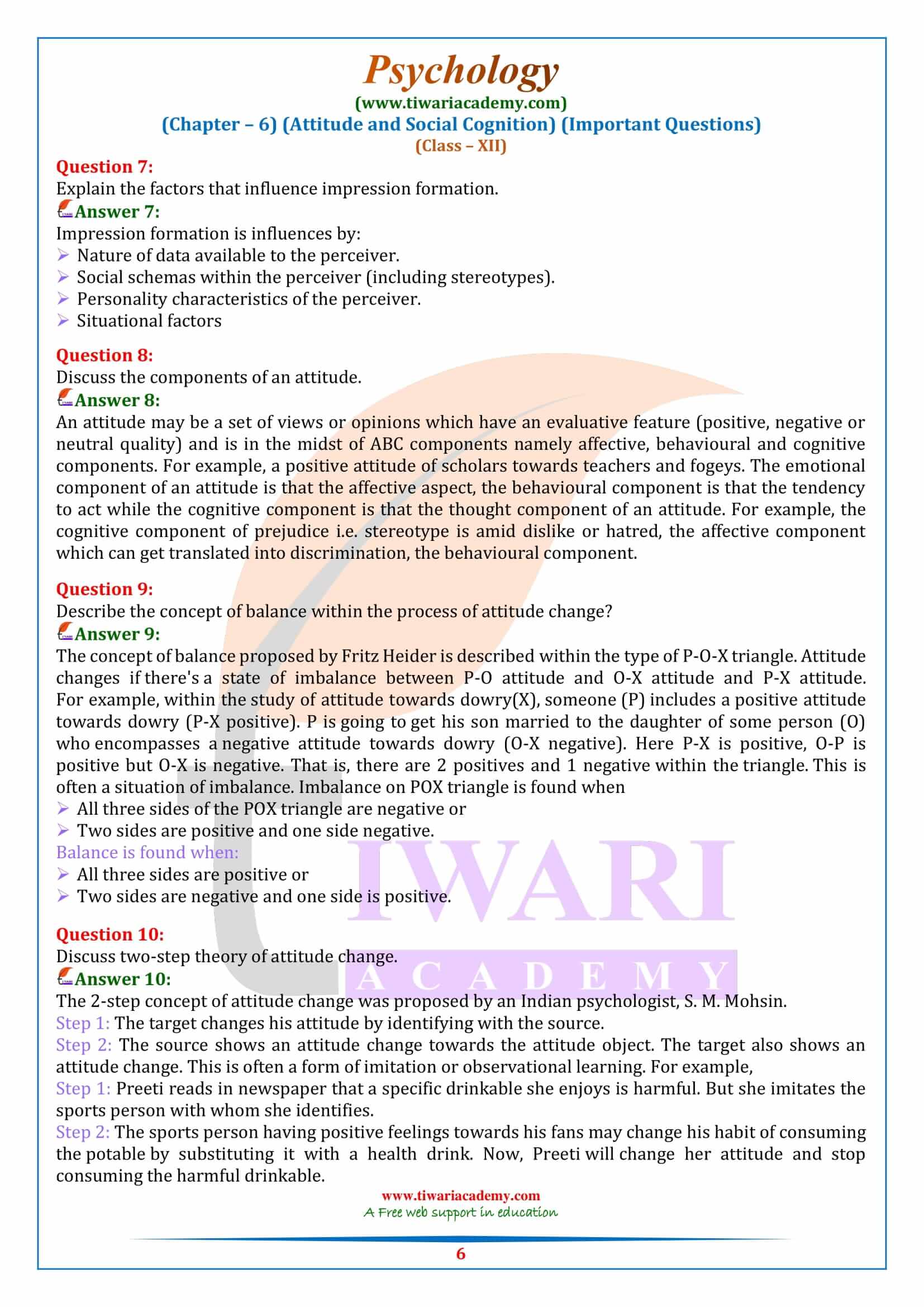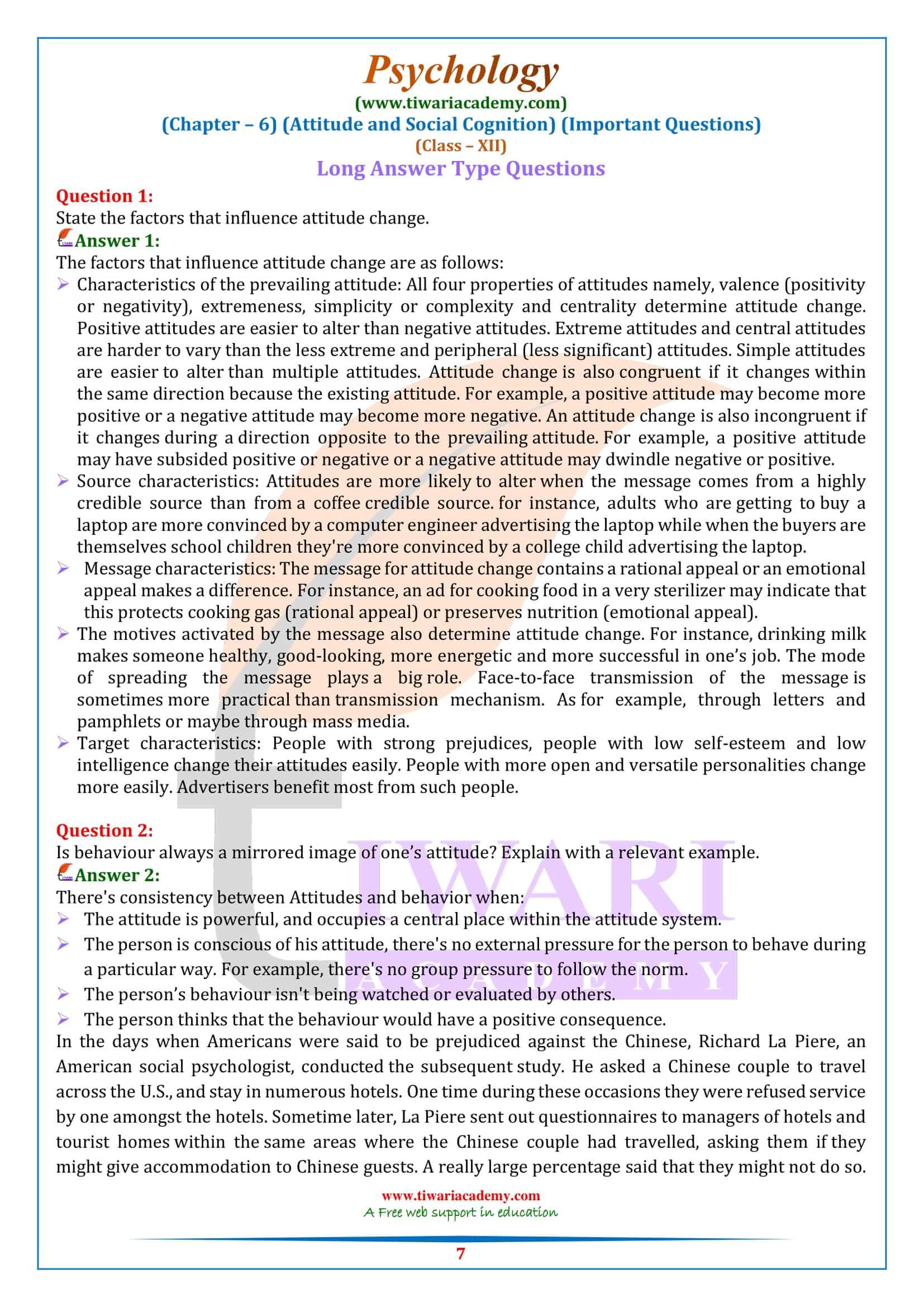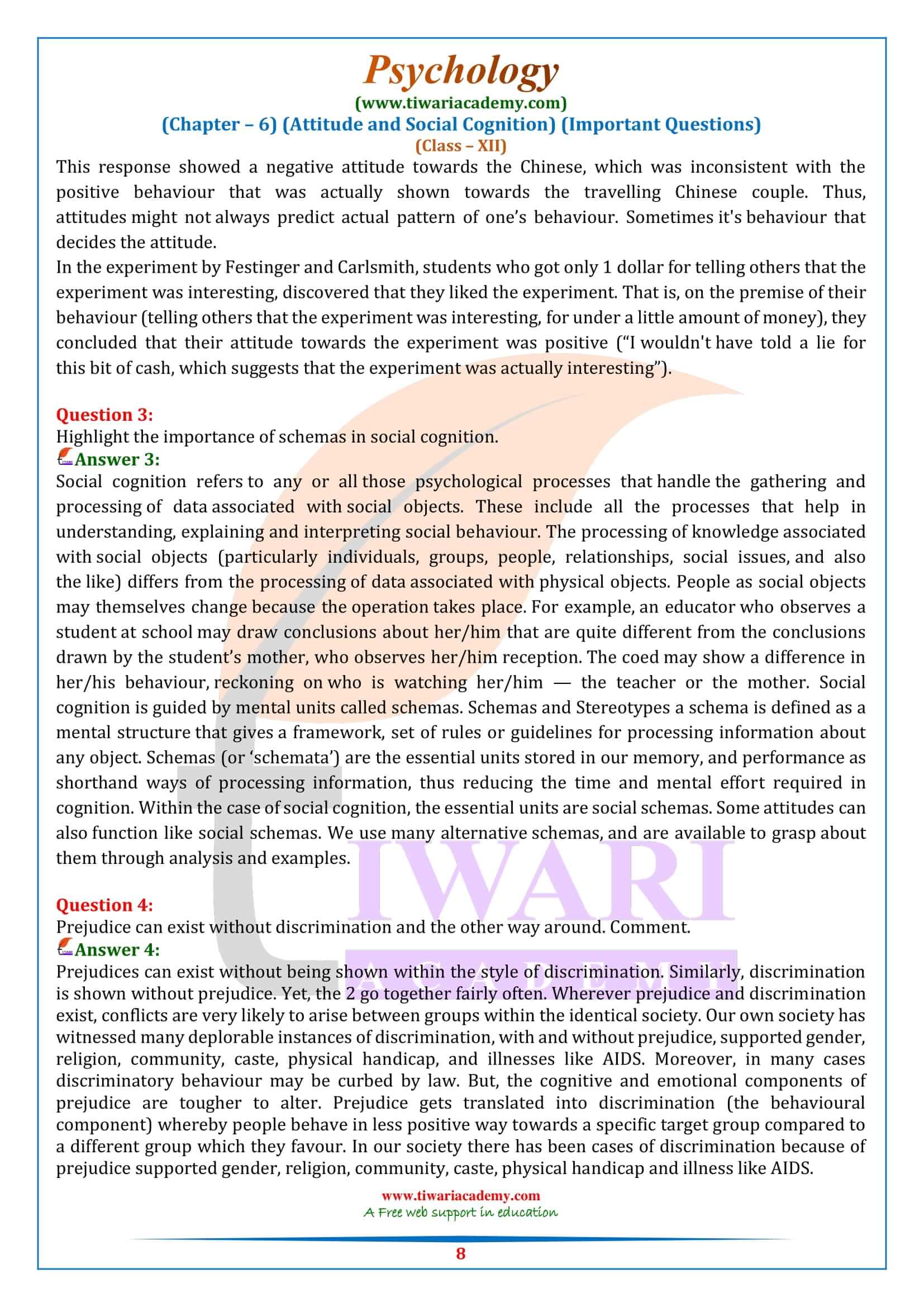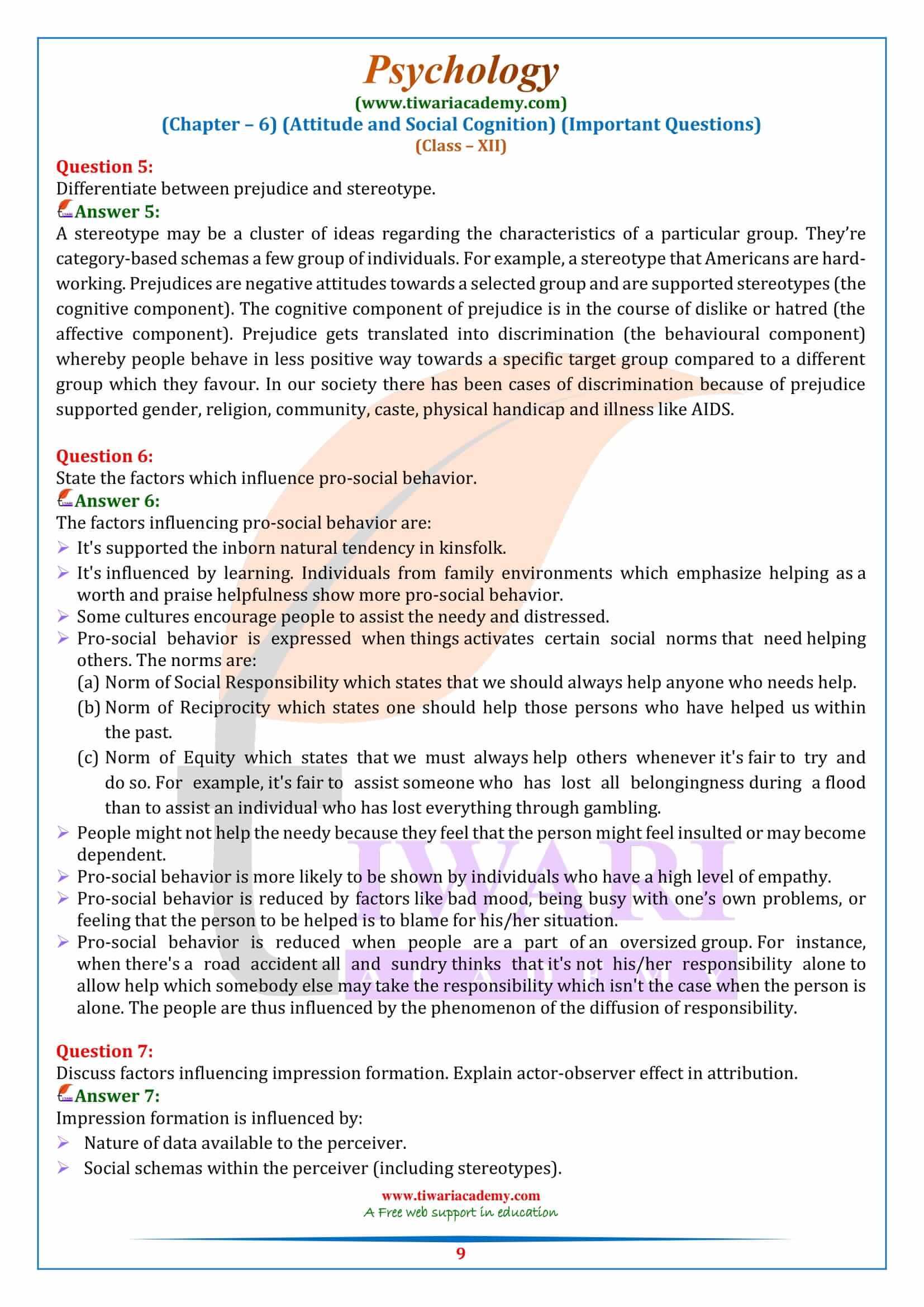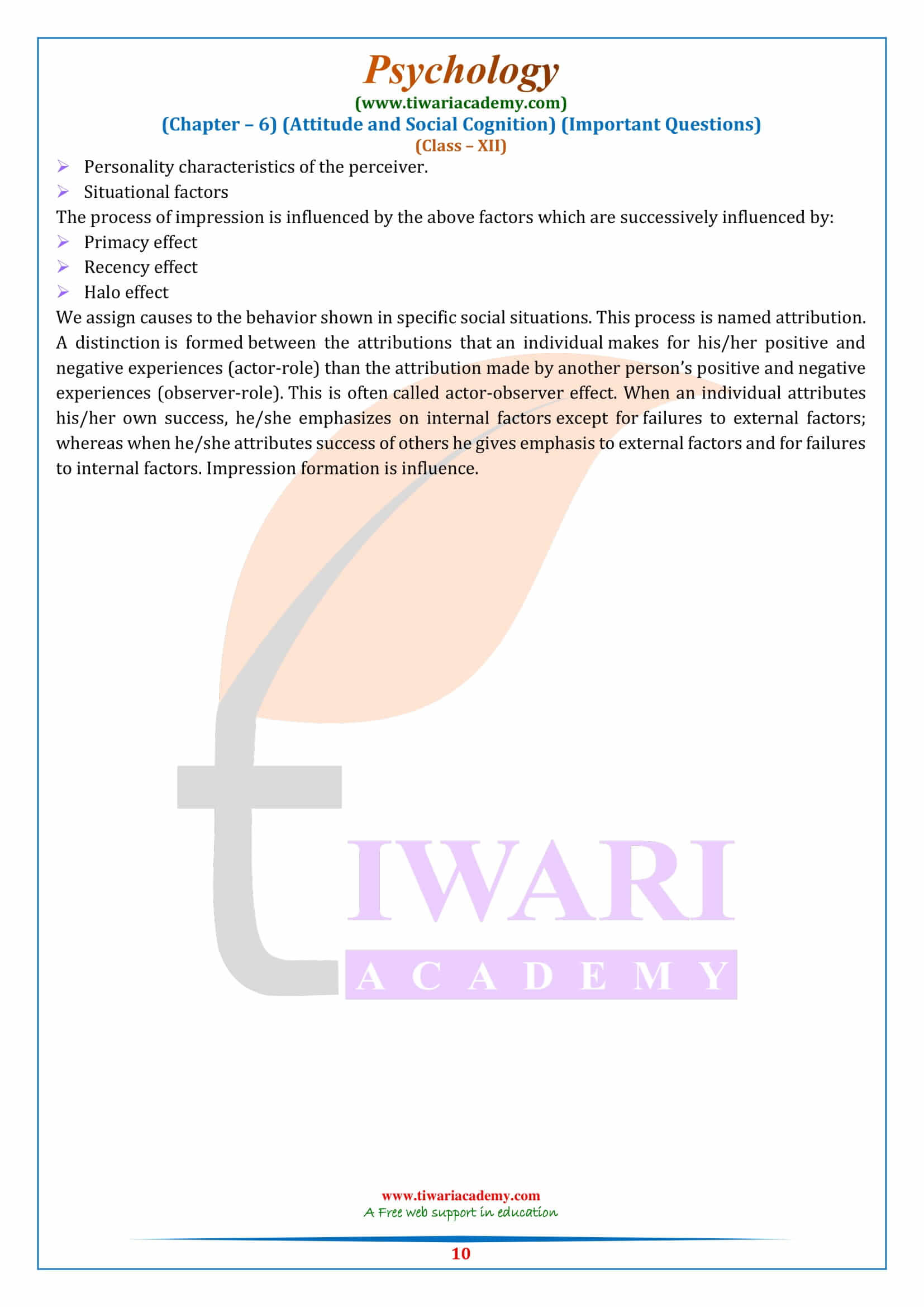Class 12 Psychology Chapter 6 Important Questions of Attitude and Social Cognition updated and modified for new session 2025-26. Class 12 Psychology Chapter 6 Extra Questions are divided in short answer type, very short and long answer type questions format.
Class 12 Psychology Chapter 6 Important Questions
Class 12 Psychology Chapter 6 Extra Questions Answers
Explain the concept of prejudice.
Prejudices are negative attitudes towards a selected group and are supported stereotypes (the cognitive component). The cognitive component of prejudice is in the midst of dislike or hatred (the affective component). Prejudice gets translated into discrimination (the behavioural component) whereby people behave in less positive way towards a specific target group compared to a different group which they favour. In our society there has been cases of discrimination thanks to prejudice supported gender, religion, community, caste, physical handicap and illness like AIDS.
What’s halo effect?
During formation of impression, we’ve got a bent to think that a target one that has one set of positive qualities must produce other positive qualities. This can be called halo effect. For example, if we are told that someone is ‘tidy’ and ‘punctual’, we are likely to think that the person must even be ‘hardworking’.
Explain social cognition with the assistance of examples.
Social cognition refers to all or any those psychological processes that cope with the gathering and processing of data associated with social objects. For example, a teacher’s conclusions regarding a student’s behavior at school are quite different from his mother’s conclusion who observes him reception.
Elaborate the ABC component of attitude.
The emotional component of an attitude is that the affective aspect, the behavioural component is that the tendency to act while the cognitive component is that the thought component of an attitude. For instance, the cognitive component of prejudice, i.e., stereotype is in the middle of dislike or hatred, the affective component which can get translated into discrimination, the behavioural component.
What are the characteristics of pro-social behaviour?
The characteristics of pro-social behavior are
- Aim to learn or benefit to others without expecting anything reciprocally.
- Helping others without expecting anything reciprocally.
- To willingly benefit others with none quite pressure.
- Provide help with none difficulty or any cost.
Discuss the concept of impression formation with the assistance of examples.
After we meet people, we make inferences about their personal qualities. This is often impression formation. For example, if an individual is nice looking we form impressions that the person would be sincere and hard-working. The one who forms the impression is named the perceiver. The individual about whom the impression is created is termed the target. Impression formation consists of the subsequent sub-processes:
- Selection: Information is collected about target person.
- Organisation: Information is combined in an exceedingly systematic way.
- Inference: A conclusion is drawn about the type of person the target is.
Explain the processes involved within the learning of attitudes.
The method of learning attitude is:
- learning of attitudes usually takes place by association,
- through rewards and punishments,
- through modelling,
- through group and cultural norms,
- through exposure to information.
State any 3 sources of prejudice.
Learning: Prejudices are learned through association, reward and punishment, observing others, group or cultural norms and exposure to information. Family, reference groups, personal experiences and media play a job within the learning of prejudices. Prejudiced persons show low adjusting capacity, anxiety and feelings of hostility against outgroup.
A powerful Social Identity and in group Bias: Prejudiced individuals who have a powerful social identity and have a really positive attitude towards their own group boost this attitude by holding negative attitudes towards other groups.
Scapegoating: the bulk group places the blame on a majority outgroup for its social, economic and political problems. Scapegoating could be a group-based way of expressing frustration and it often leads to negative attitudes or prejudices against the weaker group.
Explain pro-social behaviour.
Pro-social behavior or altruism is doing something or pondering the welfare of others with none self-interest. As an example, sharing things, cooperating with others, helping during natural calamities, showing sympathy, doing favours to others.
